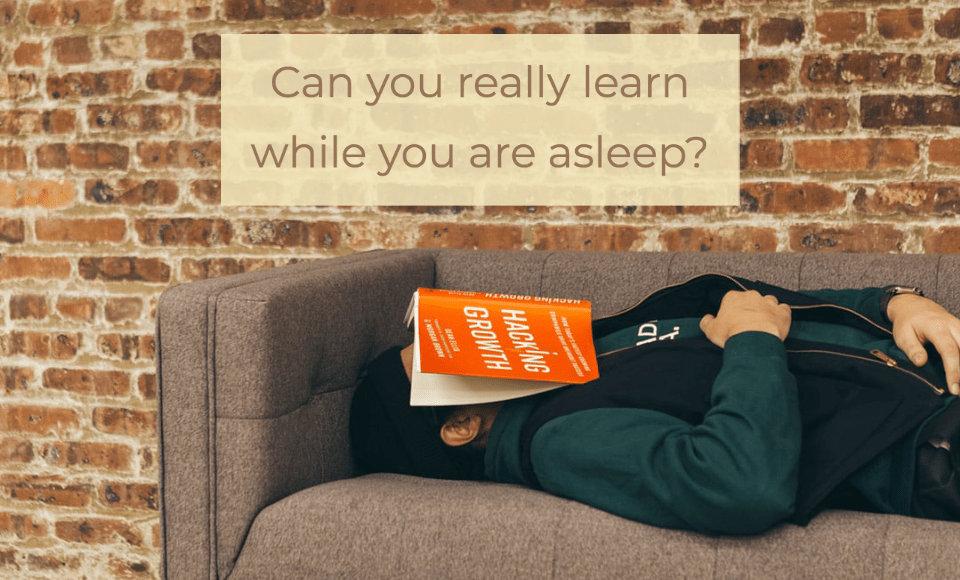Long before scientists and researchers were dissecting what happens to our brains when we close our eyes at night, many moms and dads were doling out the simple secret of how to do well on the next day’s big exam: get a good night’s sleep.
An article from 2015 on theguardian.com website, “How much can you really learn while you’re asleep?” discussed the idea of being able to learn new information while you’re asleep. It discussed the 1932 novel Brave New World and how one character fell asleep next to a radio receiver and woke up being able to recite the broadcast that had been playing when he fell asleep. However, it also stated that even though there are many sources saying you can learn while you sleep, the research may not support it.
The article stated that research was conducted where subjects were trying to learn a foreign language. The subjects were presented words, from Dutch to German, at 10 p.m. and they listened to the words until 2 a.m. Half of the subjects could sleep until 2 a.m. When the entire group was re-assessed the subjects, those who could sleep recalled more words than those who didn’t sleep. The question was whether the subjects recalled more words because they listened to the recording or because they slept.
This research found that, yes, you can learn while you’re asleep, but not as much as many articles and self-help gurus would like you to believe. The researchers reported that actually getting a good night’s sleep does more to help you retain what you’ve learned than any sleep ‘hacks’ you could use while you’re sleeping.
In an article on singularityhub.com, “New Study Suggests You Can Learn While You Sleep,” suggests there is a possible way to learn as you sleep. Sleep is more than simple downtime. In fact, studies have found that sleeping can help remove toxic molecules that may lead to Alzheimer’s disease. It also helps to reorganize your memories which helps to reinforce important facts and experiences in your long-term memory.
Their final report determined that it may be possible to learn new vocabulary while you’re asleep because words are knowledge-based and not based on gut feelings. The report concluded that “scientists don’t yet know if active learning during sleep might interfere with sleep’s more prominent role of consolidating daytime memories.” They determined that more study was needed.
Finally, in an article by whatispsychology.net entitled “Can You Learn While You Sleep?”, the researchers explained the history of trying to understand the “sleep-learning” idea. Starting in 1956, researchers have been trying to determine if was possible. A research team from Israel paired scents and tones that were used during the time their volunteers were asleep. They found that if they played the tone associated with the pleasant scent after the volunteer woke, they would take a deeper breath, almost expecting the pleasant scent. And, if the short tone was played, associated with the unpleasant smell, the volunteers took shorter breaths. The research seemed to show that the volunteers took the same type of breaths based on the tones, indicating that they associated the sound and the smells in a learned response.
A second similar experiment by the team tried to determine if conditioning was associated during a specific phase of sleep. The volunteers were given the same type of pairing (scent and tone) during the different cycles of sleep – REM and non-REM. They found that during the REM phase the learned sniffing response was more pronounced, but it did not remain during the time they were awake.
If the pairing was given during the non-REM phase, however, the volunteer was found to associate them during the time they were awake. This led the researchers to theorize that people may be more receptive to sleep-learning while in non-REM sleep.
They concluded their research by saying, “Now that we know some kind of sleep learning is possible, we want to find where the limits lie – what information can be learned during sleep and what information cannot.”
While there hasn’t been isn’t any specific research proving sleep learning is possible, the results to show that further studies are needed. Who knows, perhaps in the future, new studies will prove that learning while you’re asleep is possible and explain how to put it into practice in your own life.
Also, if you are interested in remembering your dreams, you may also use a dream journal to list them out. To learn more about this, you may read our article about what a dream journal is.

